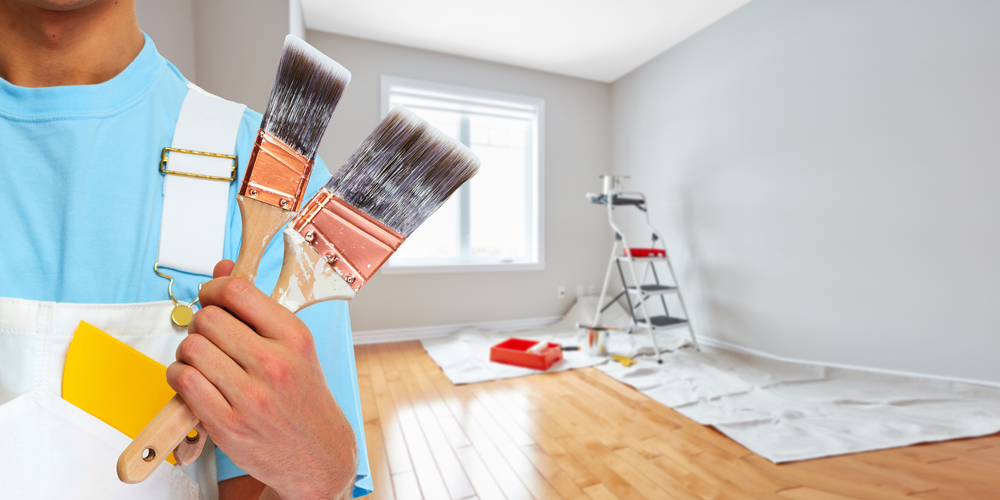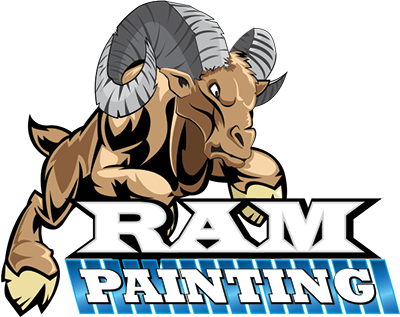
Prepping Your Home for a Painting Company in Las Vegas
There’s nothing like a fresh coat of paint to update the appearance of your property. However, any residential painter will tell you that the results are only as good as the preparation. Before beginning your next painting project, let professionals from a painting company in Las Vegas get you off to a good start.
Why Prepping Your Home for Painting Is So Important
Even in a relatively new, unblemished home, pre-project prep is essential for getting a lasting finish and protecting the surrounding area. The minimum that will need to be done beforehand is getting objects and wall fixtures out of the way and patching holes.
However, there’s more work to be done before we lay that first coat of new paint.
DIY or Painting Contractor?
Some people enjoy fixing up an old home. For others, hiring a residential painter is a necessity due to time constraints or lack of tools and ability. Even if you hire a painting contractor, some aspects of preparation are up to you.
For example, you can expect a professional to prime the walls and lay tarp or a painting cloth. But, they’re not going to remove your valuables or cover your furniture.
In fact, it’s important that you get these details in writing before you sign a contract. This will help you avoid any surprises, such as learning that your contractor isn’t liable if something gets broken or paint drips on your prize rose bushes.
Before hiring Vegas painters, ask the following questions:
• Are you licensed and insured? By law, painting contractors must carry comprehensive business liability insurance and workmen’s compensation insurance. This is for your protection as much as theirs if someone is injured on the job or damages your property.
• Do you perform all work in-house or do you use subcontractors? Painters who aren’t company employees may not have the required insurance protection, which can spell trouble for you. Because subcontractors are being paid a flat fee, the quality of the work may suffer.
• Who is responsible for cleanup, and to what extent? The last thing you want to learn the hard way is that you’ll have to clean up a worksite or dispose of debris.
• Do you have your own tools and equipment? Beware of the professional painters who need to borrow your ladder or lack proper safety gear and equipment.
• Do you offer a warranty? Materials like paint, primmer, and lumber or tile are usually warrantied by the manufacturer. Make sure that the products used are the same as those that are specified in the proposal.
Any reputable painting contractor will be happy to guaranty their workmanship and put it in writing. Make sure the contract spells out how they handle complaints or mistakes. Will they come back and fix it for free? How long is the work guaranteed?
Be aware that most painters will not warranty interior paint jobs for labor since interior paint isn’t exposed to the elements like exterior walls. However, there should be some remedy if you’re genuinely unhappy with the work. Make sure that whatever is discussed or promised is put in writing.
Read more on a painter’s advice on desert tones color and shades here.
Interior or Exterior Paint?
How your new project to-do list progresses depends on what you’re painting. Exteriors have different preparation considerations than interior paint jobs.
For example, you have to worry more about weather-proofing and environmental damage when painting outdoors. But, there is less to fear from paint fumes in an open-air space. If paint spills inside your home, the floor coverings will be damaged. This is less of a problem if paint spills on the ground.
Even openings are handled differently depending on whether you’re indoors or out. Exterior window and door prep will involve caulking the crevices before you paint. Inside, your biggest worry is keeping paint off the window panes. You may also need to relocate your family for a few days if you’re having the interior repainted.
Other than that, many of the preparation techniques and considerations are the same.
Step One: Remove Everything That’s Movable
Getting fixtures, window treatments, interior doors, and furnishings out of the way will help you avoid accidents. We’ll also get the job done faster – and safer – if there is less to trip over or work around.
On the exterior of your home, that means removing hose caddies, outside lighting fixtures, and anything else that’s attached to or near you home. You should also cut back any hedges and trim trees that are in the way. Indoors, remove anything on the walls and any furniture, rugs, and other accessories that will be in the way.
Step Two: Cover Everything Else
Anything that can’t be moved should be covered with a tarp or bed sheet. That includes the ground, shrubs, and flower beds around your home or flooring, sinks, and countertops on the inside.
Outdoor AC units should be covered with plastic and taped. Inside your home, remove any vent coverings, but don’t block the vents. You’ll need to keep air circulating to reduce paint fumes, especially if you’re unable to open the windows.
If you’re doing the repainting, place painter’s tape around anything that you don’t want painted but can’t remove. This includes trim, permanent fixtures, pipes, wall outlets (make sure to remove the covers!), and window panes.
Step Three: Prepare the Surfaces
This is where professional house painters in Las Vegas really earn their money. The first thing you’ll need to do is clean the surface thoroughly. Scrub interior walls and vacuum surfaces, such as window sills, floors, and on top of trim.
If the outside is being painted, power wash the walls. Be careful to avoid forcing water into cracks, crevices, and seams in the siding. You can remove tough debris with a brush, a phosphate-free solution mixed with water, and a little elbow grease.
Once the walls are cleared and cleaned, you’ll need to inspect them for damage.
According to our Las Vegas painter, things that can mar the finish or prevent the paint from sticking include:
• Adhesives, such as tape residue or wallpaper paste
• Nail holes
• Scratches and dents
• Grease, oil, and dirt
Patch any holes and imperfections a few days before the paint job to ensure that the plaster or putty has time to dry. Remove peeling paint or old flakes that are loose and didn’t come off when you washed the walls.
Avoid Paint Project Headaches by Hiring a Painting Company in Las Vegas
Repainting your home isn’t as much fun as it appears in the movies. It also takes a lot of time and effort if you want your new paint job to look professional. Why not save yourself some stress and hassle? You’ll get great results when you choose a painting company Las Vegas residents trust to get the job done right the first time.

